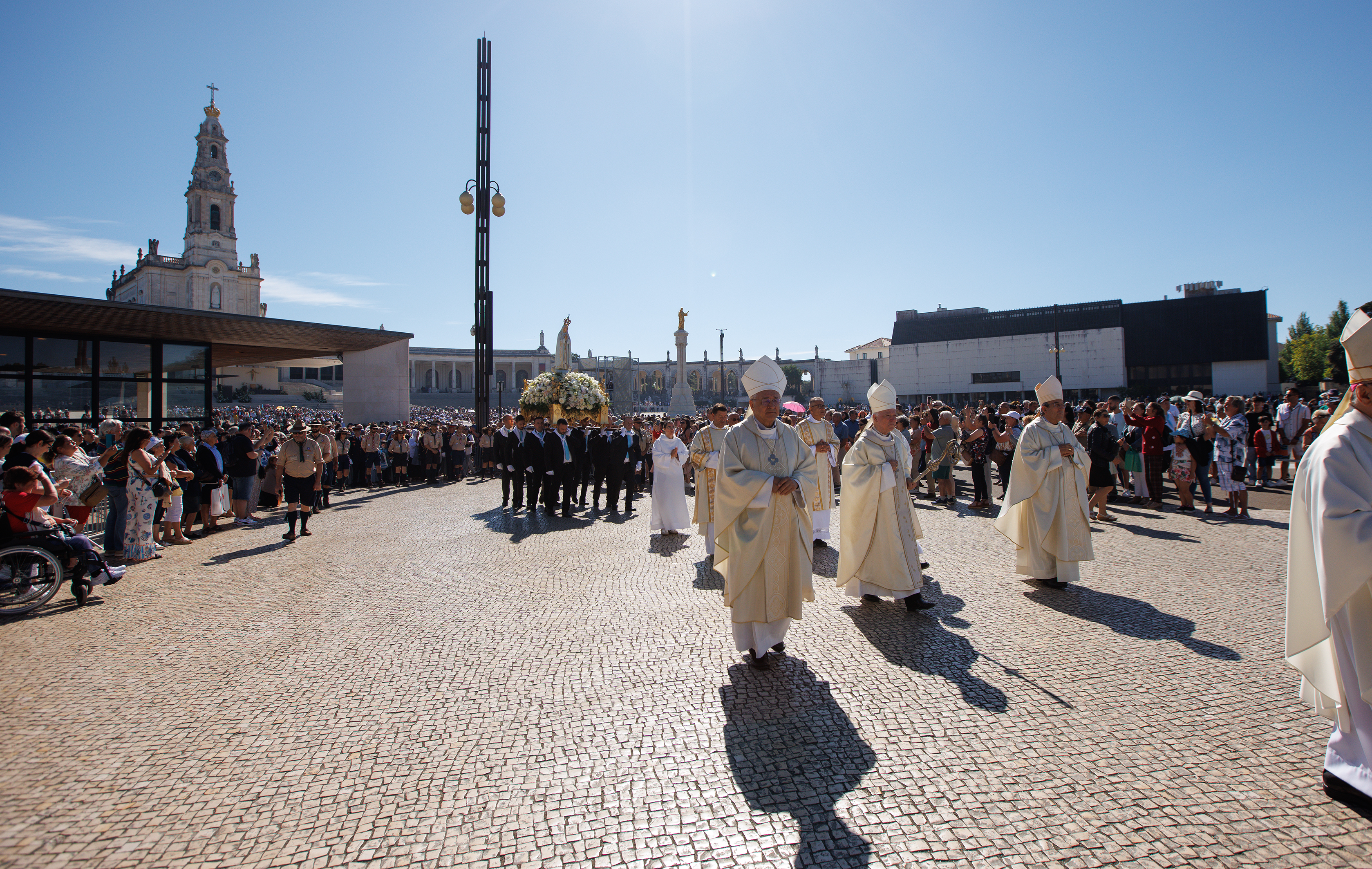13 july, 2024

Mgr. Manuel Felício recalled the tragedy of war “in less reported parts of the world”During the July pilgrimage, the bishop of Guarda recalled the “precious recommendations” that Our Lady left at Cova da Iria.
Mgr. Manuel Felício was in Fatima on 12 and 13 July to invite pilgrims to “remember the happy experience of the Three Little Shepherds”. At Cova da Iria, Our Lady “made an invitation to prayer and penance, She came to tell the world what needs to be done to overcome crises, and the great crisis that was being experienced at that time and which was causing people, families and nations to suffer was the crisis imposed by World War I”. The bishop of Guarda recalled that the crises “are not over, and in particular the tragedies of war are calling for solutions that bring tranquillity and peace back into the lives of people and peoples”. By the time of Our Lady’s third apparition to the Three Little Shepherds, there had already been news of the previous apparitions and so, on 13 July 1917, a crowd had gathered at Cova da Iria. In this apparition, Our Lady asked for special prayers for sinners and it was also on this day that Lucia, Jacinta and Francisco had a vision of hell. The Virgin announced that the war would end, but that a new, even worse conflict would begin during the pontificate of Pius XI if humankind didn’t stop offending God. On this occasion, Our Lady also revealed the Secret of Fatima, divided into three parts. The first is a vision of hell; the second presents devotion to the Immaculate Heart of Mary; the third refers to the pilgrim and martyr Church. In his homily on 13 July, Bishop Manuel Felício spoke of this apparition in particular, referring to the “precious recommendations that Our Lady left”. “Today, in this shrine of Hers, we want to feel once again how She is our model and our mother, always attentive not only to our requests, but above all attentive to the needs of the whole world, today facing new problems, of which wars are the most visible and felt expression by the populations,” the prelate warned. Mgr. Manuel Felício believes that the greatest urgency in the world today is peace. “We're thinking of Ukraine and Palestine, but also of other parts of the world that are less in the news, but where the tragedy of war has taken hold and is causing entire populations to suffer,” he said. He specifically mentioned the situation in Sudan, Myanmar, Lebanon and Ethiopia. These places “occupy less space in the news, perhaps because they are considered less important for the interests of rich countries, but people live there who suffer the horrors of war and are dying”. The prelate quoted the Holy Father to say that war is always “a failure for all the parties involved, and particularly today there are no winners to be expected”. Therefore, the only way forward is to “make peace, that blessing without which life is a torment”. “It is the path of dialogue to achieve understanding between people, countries, races, religions and cultures,” he said.
In a final greeting, Mgr. José Ornelas, of the Diocese of Leiria-Fatima, praised the “message of peace” throughout these two days of pilgrimage and considered that humankind “thirsts for peace”. “We are pilgrims of hope for the upcoming jubilee year of 2025, so let’s take this message that we have received here everywhere,” as the disciples did with Jesus’ words. The prelate challenged the children present in Fatima to put down their computers and mobile phones during the holidays and to “bring the gift of joy” by trying out other family activities. At the end of the celebration, the traditional Farewell Procession took Our Lady of Fatima back to the Chapel of Apparitions.
|